PSYCHOLOGY
STUDY THE
WONDERS OF
HUMAN BEHAVIOR

BACHELOR OF ARTS IN PSYCHOLOGY (B.A.)
Study how people think, feel, and behave—that is the core of the psychology major at Georgian Court University. If you’re empathetic and driven to help others cope with challenges and stress in their lives, you might be interested in pursuing a Bachelor of Arts in Psychology. With a bachelor’s degree in psychology, you can pursue a career in counseling, therapy, health care, social work, and more.
At Georgian Court, the psychology program builds a strong liberal arts foundation and offers five distinct areas of focus: mental health and human services, human development, business and industry, applied behavior analysis, and addictions counseling. Regardless of the concentration, students in the psychology program will enjoy the opportunity to conduct hands-on research alongside expert faculty members. At the end of the program, all psychology students complete an internship capstone that allows them to gain real-world clinical experience ahead of graduation.
IN-PERSON
On-Campus Learning
4 YEARS
Program Length
120
Total Credits Required

11:1
Student-to-Faculty
Ratio
1,612
UNDERGRADUATE STUDENT
POPULATION
90%
STUDENTS RECEIVING
FINANCIAL AID FROM GCU
96%
FULL-TIME FACULTY WITH
DOCTORAL DEGREES
36%
FIRST-GENERATION
COLLEGE STUDENTS
Top 20%
OVERALL MOBILITY
INDEX
WHAT CAN YOU DO WITH A B.A. IN PSYCHOLOGY?
You can pursue an unlimited amount of career paths with a degree in psychology. That’s because psychology degrees provide a broad liberal arts background and build versatile skills that employers value, such as communication, critical thinking, and compassion. Graduates from the psychology program might consider working in business, education, health care, or nonprofit social work. Not to mention, about 25% of GCU psychology undergraduates pursue advanced degrees and licensures, which open doors to even more career paths, including psychologist, counselor, and therapist.
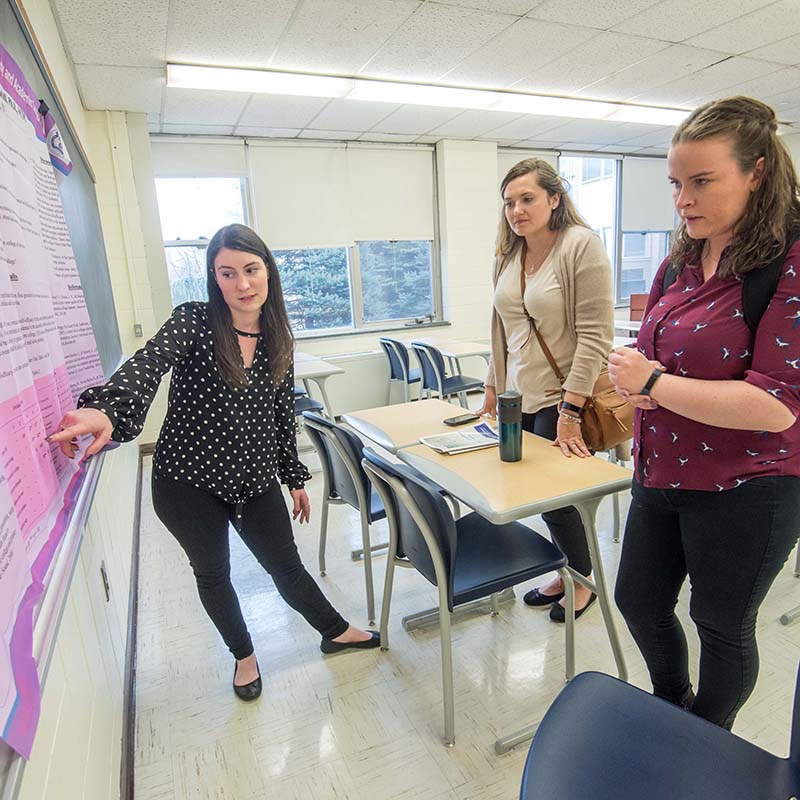
HANDS-ON LEARNING
The School of Arts & Sciences at Georgian Court University includes several disciplines with more than 40 programs, from cybercrime to studio art. We seek to foster a sense of community that allows students to engage deeply with the content and enjoy immersive, hands-on experiences that prepare them for thriving careers.
As part of the psychology program, you’ll participate in research projects as well as an internship capstone project. This opportunity is a culmination of all you’ve learned at GCU and helps to develop real-world clinical experience that you can put on your resume.
PSYCHOLOGY MAJOR
A bachelor’s degree in psychology can equip you to help individuals, organizations, and entire communities. The program requires 120 credits. Browse coursework and program requirements below.
PSYCHOLOGY MINOR
Discover how a minor in psychology is a powerful addition to many degrees. Gain a deeper understanding of human behavior and develop skills in counseling, intervention, and critical thinking.
PSYCHOLOGY FACULTY
The GCU faculty are psychology professionals—in the classroom and in private practice—who deliver their expertise to students through engaging and meaningful coursework.
Psychology Program Information
You’ll need to successfully complete at least 120 credits, including General Education requirements and the major requirements below.
Curriculum – B.A. in Psychology
To earn this degree, students must successfully complete at least 120 credits, including General Education requirements and the major requirements below.
Major Sequence
At a minimum, all psychology majors are required to complete 36 semester hours of credit in psychology. As part of these 36 hours, students must take a series of 30 or 31 credits of core courses.
| Code | Title | Credits |
|---|---|---|
| Core Courses | 30.0-31.0 | |
| PS111 | Introduction to Psychology | 3.0 |
| or PS113 | Foundations of Psychology | |
| PS214 | Intermediate Issues in Psychology | 3.0 |
| PS223 | Psychopathology | 3.0 |
| or PS245 | Psychology of the Exceptional Child | |
| Select one of the following three developmental courses: PS221, PS224, or PS227: 2 | 3.0 | |
| PS232 | Intro to Stats for the Beh Sciences | 3.0 |
| PS332 | Psychology of Learning | 3.0 |
| or PS360 | Cognitive Psychology | |
| PS334 | Social Psychology | 3.0 |
| PS341 | Biological Psychology | 3.0 |
| PS430 | Rsrch Mthds & Stats for the Beh Sciences | 3.0 |
| Select one of the following four capstone courses: | 3.0-4.0 | |
PS431 | Experimental Psychology | |
PS450 | Internship in Psychology | |
PS456 | Internship in Psych:Addictions Treatment | |
PS455 | Senior Seminar | |
| Psychology Electives | 6.0 | |
Addictions Counseling
This course sequence is recommended for students pursuing employment in addictions counseling. It is also recommended for students interested in pursuing graduate study in fields such as counseling and clinical psychology. In addition to the core courses listed above, this course sequence recommends:
| Code | Title | Credits |
|---|---|---|
| Recommended Course Sequence | ||
| PS270 | Theories of Personality | 3.0 |
| PS281 | Introduction to Addictions & Recovery | 3.0 |
| PS282 | Foundations of Addictions Treatment | 3.0 |
| PS331 | Basic Counseling | 3.0 |
| PS380 | Prof Issues of Addiction Counseling | 3.0 |
| PS456 | Internship in Psych:Addictions Treatment | 3.0 |
Students who complete this sequence of courses are eligible to apply for the Clinical Alcohol and Drug Counselor (CADC) license once they have completed the requirements for supervised experience required by the Division of Consumer Affairs of New Jersey.
Psychology Scholars Program
The Psychology Scholars Program (PSP) offers students an integrated program of intensive and personal instruction for students whose goal is to pursue a career in psychology, counseling, or a related field. From the time the Psychology Scholars enter the university as first-year or transfer students, they work in a small cohort of highly qualified students, developing the skills of research and practice that are necessary for success in their chosen field. Close contact with faculty members of the department and throughout the university enriches the students’ learning through interesting and challenging curricular and extracurricular experiences.
Students who enter the PSP as first-year students complete the regular requirements for the psychology major and take honors sections of the following courses:
| Code | Title | Credits |
|---|---|---|
| PS113 | Foundations of Psychology | 3.0 |
| PS223 | Psychopathology | 3.0 |
| PS332 | Psychology of Learning | 3.0 |
| PS360 | Cognitive Psychology | 3.0 |
| PS334 | Social Psychology | 3.0 |
| PS341 | Biological Psychology | 3.0 |
| PS430 | Rsrch Mthds & Stats for the Beh Sciences | 3.0 |
| PS431 | Experimental Psychology | 4.0 |
- In addition, PSP students complete either
- An internship course or
- PS440 Supervised Research in Psychology or
- PS460 Research in Psychology I
Students who are simultaneously enrolled in the PSP and the University Honors program must also complete three courses in the University Honors Program:
- EN221 Honors Argument: Rhetoric & Research
- GEN199 WI:Discovering Self in the Universe
- GEN400 WI:Visioning a Future
Students who transfer into the PSP or enter after the first year:
- Complete the regular requirements for the psychology major.
- Take any of the honors-designated PS courses for which they have not already taken an equivalent; if they are unable to take at least six honors-designated PS courses, they may take courses as honors by contract with permission of the program director. Transfer students do not typically take PS113 Foundations of Psychology, but a student who transfers in with very few psychology credits may be advised to do so.
- Complete the internship or research course requirement for the PSP.
Students may substitute a 300- or 400-level psychology course as honors by contract for a regularly offered PSP course by permission of the program director.
Continuation in the program requires maintenance of honors standing in the PSP. In order to maintain membership in the PSP, students must maintain a GPA of 3.2 or obtain the permission of the program director. Graduation with Departmental Honors in Psychology requires a GPA of 3.3 at graduation.
Students who successfully complete the PSP are guaranteed admission to their choice of the GCU Psychology and Counseling M.A. programs, pending an application and a successful interview. In order to retain the automatic admission to the graduate program (conditional upon interview), the student must complete the following:
- Graduation overall GPA at least 3.5, Psychology GPA at least 3.6
- No semester GPA below 3.0
- No more than two course grades below B-
Transfer Regulations for all Psychology Majors
Students must complete a minimum of 21 credits in the Psychology program at Georgian Court including one of the capstone courses (PS431 Experimental Psychology or PS450 Internship in Psychology or PS456 Internship in Psych:Addictions Treatment or PS455 Senior Seminar).
For more information on program requirements, consult the Undergraduate Catalog.
Curriculum – Minor in Psychology
Gain a deeper understanding of human behavior and develop skills in counseling, intervention, and critical thinking with a minor in psychology from GCU.
Minor Sequence
Eighteen credits must be completed in psychology, including
- either PS111 Introduction to Psychology or PS113 Foundations of Psychology and
- PS214 Intermediate Issues in Psychology
At least 9 credits must be completed at Georgian Court, and at least 6 credits must be earned in courses at the 300 or 400 level. Psychology minors can also participate in the bachelor’s to master’s Advanced Admission to the M.A. in Applied Behavior Analysis program.
Faculty
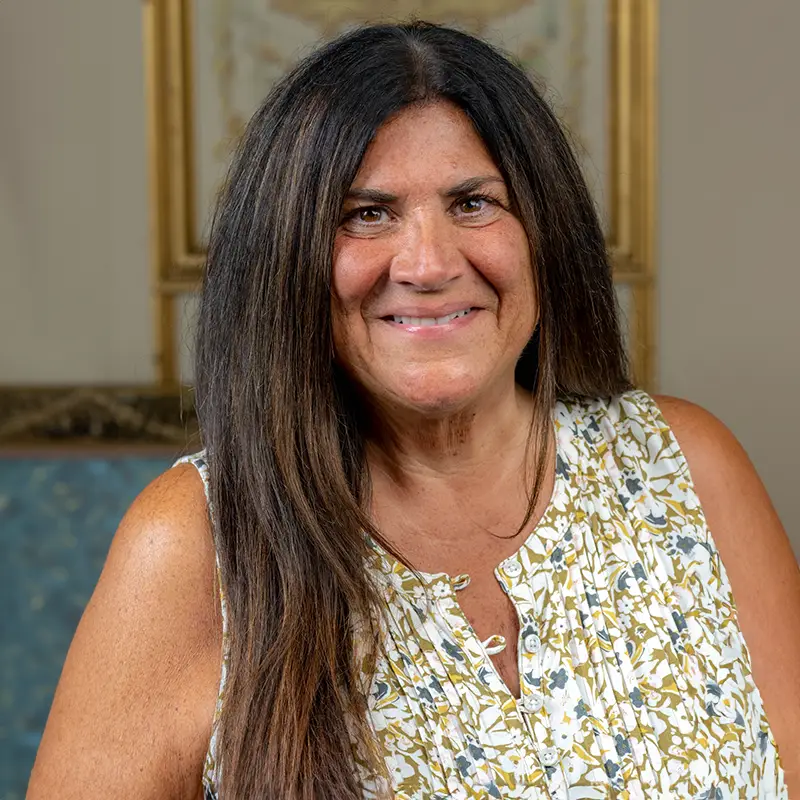
Lynn M. DeCapua, Ph.D.
Professor of Psychology and Counseling
School of Arts, Sciences, and Education
Farley Center 104
ldecapua@georgian.edu
732-987-2709
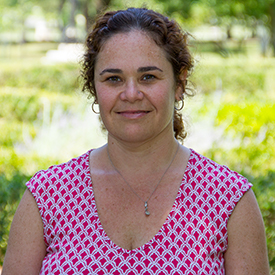
Marni Elson-Victor, M.S.
Field Placement Coordinator and Instructor
Psychology and Counseling Department
School of Arts, Sciences, and Education
Mercedes Hall (104)
melson-victor@georgian.edu
732-987-2619

Susan E.O. Field, Ph.D.
Professor of Psychology
School of Arts, Sciences, and Education
Farley Center (112)
sfield@georgian.edu
732-987-2643
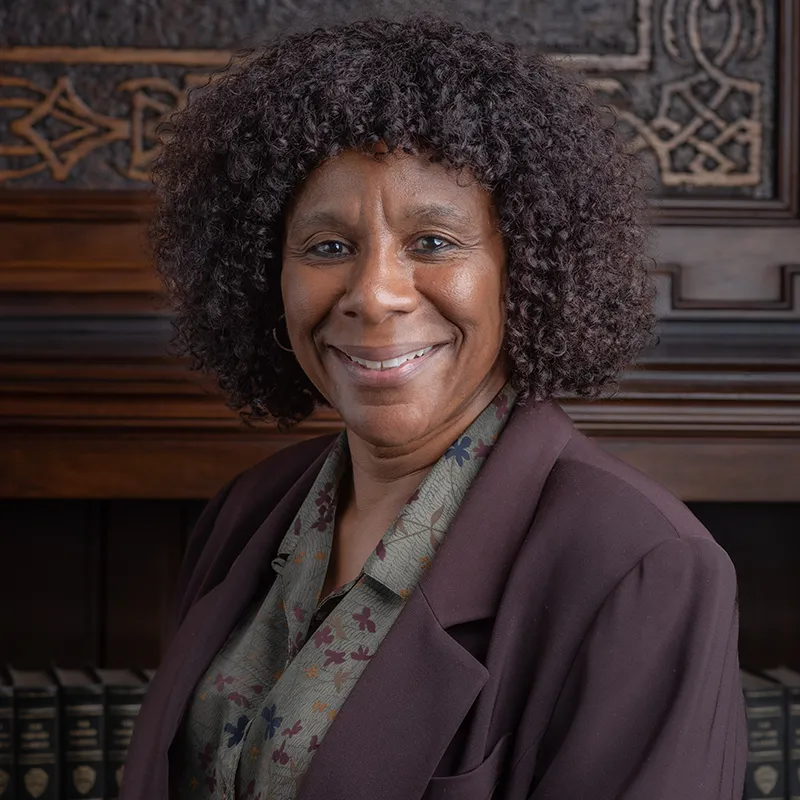
Harriett Gaddy, Ph.D.
Associate Professor of Psychology and Counseling; Director of the Clinical Mental Health Counseling Program
School of Arts, Sciences, and Education
Farley Center
hgaddy@georgian.edu

Alicia Gialanella, Ph.D.
Assistant Professor of Psychology and Counseling
Department of Psychology and Counseling
School of Arts, Sciences, and Education
Mercedes 201
agialanella@georgian.edu
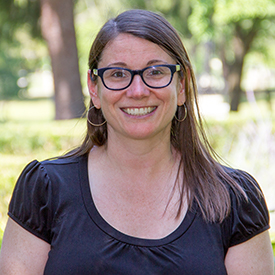
Karen J. Kelly, Ph.D.
Assistant Professor
Department of Psychology and Counseling
School of Arts, Sciences, and Education
Mercedes Hall (200)
kkelly@georgian.edu
732-987-2618
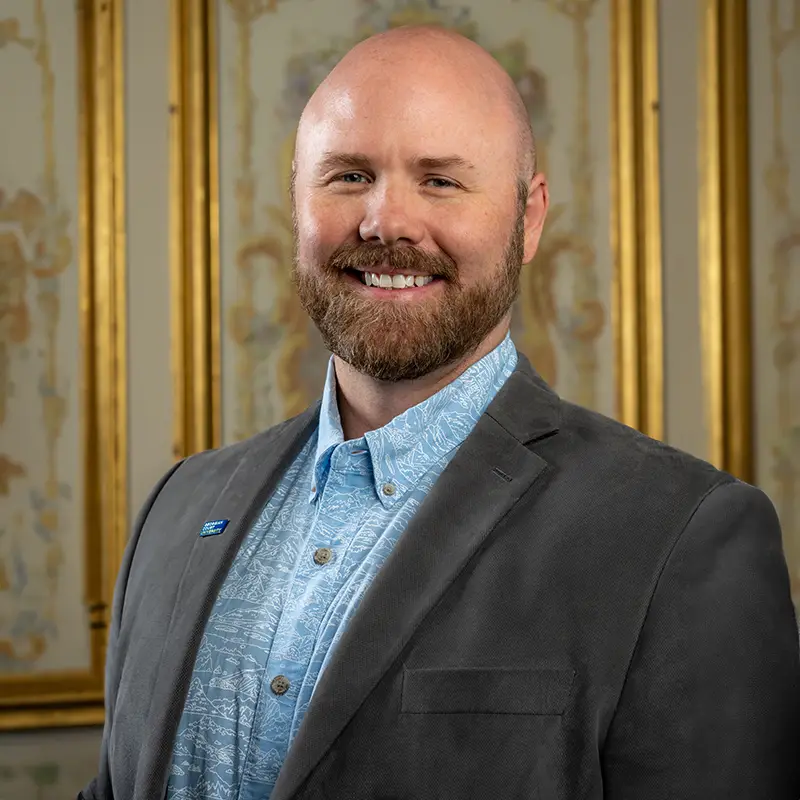
Chad Kinney, Ph.D., BCBA-D
Assistant Professor of Psychology and Counseling
School of Arts, Sciences, and Education
Farley Center
ckinney@georgian.edu

Lori Nixon, Ph.D.
Assistant Professor
School of Arts, Sciences, and Education
Farley Center, 110
lnixon@georgian.edu
732-987-2655

Stephanie Rahill, Ph.D.
Professor of Psychology and Counseling
School Psychology Program
School of Arts, Sciences, and Education
Farley Center (109)
srahill@georgian.edu
732-987-2420
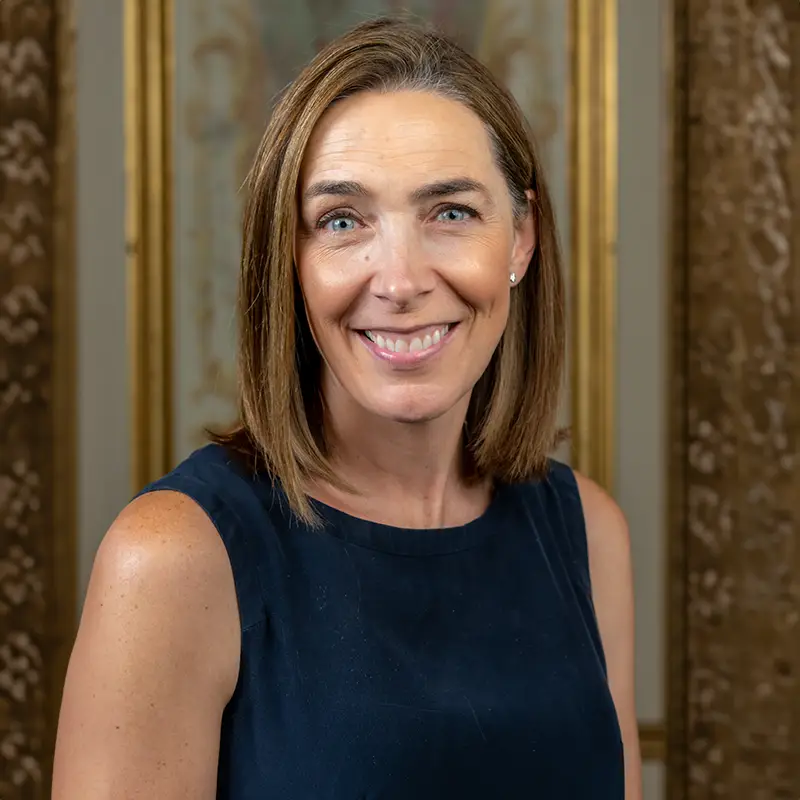
Rebecca Randall
Assistant Professor of Psychology & Counseling
Psychology and Counseling Department
School of Arts, Sciences, and Education
Farley Center
rrandall@georgian.edu
732-987-2791
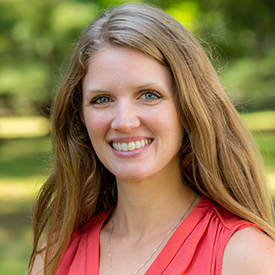
Heather Tacovsky, Psy.D.
Assistant Professor of Psychology and Counseling
School of Arts, Sciences, and Education
htacovsky@georgian.edu
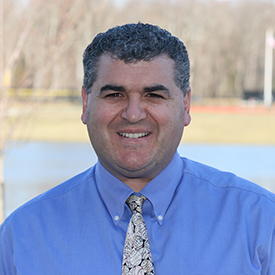
Christopher T. Trigani, Ph.D.
Professor
School of Arts, Sciences, and Education
Farley Center (111)
ctrigani@georgian.edu
732-987-2637
Psychology Course Rotation
| COURSE ID# | TITLE | FALL | SPRING |
|---|---|---|---|
| PS111 | Introduction to Psychology | X | X |
| PS113 | Foundations of Psychology | X | |
| PS214 | Intermediate Issues in Psychology | X | X |
| PS221 | Child & Adolescent Development | X | X |
| PS223 | Psychopathology | X | X |
| PS227 | Lifespan Development | X | |
| PS232 | Introduction to Stats for Beh. Sci. | X | X |
| PS245 | Psych. of the Exceptional Child | X | X |
| PS270 | Theories of Personality | X | |
| PS281 | Introduction to Addictions & Recovery | X | |
| PS282 | Foundations of Addictions Treatment | X | |
| PS300 | Multicultural Psychology | X | X |
| PS320 | Forensic Psychology | X | |
| PS321 | Criminal Profiling | X | |
| PS331 | Basic Counseling | X | |
| PS332 | Psychology of Learning | X | |
| PS333 | Introduction to ABA | X | X |
| PS334 | Social Psychology | X | X |
| PS341 | Biological Psychology | X | X |
| PS360 | Cognitive Psychology | X | |
| PS375 | Introduction to School Psych. | X | |
| PS425 | Clinical Methods | X | |
| PS430 | Research Methods & Stats | X | X |
| PS431 | Experimental Psychology | X | |
| PS450 | Internship in Psychology | X | |
| PS455 | Senior Seminar | X | X |
| PS456 | Internship in Addictions | X |
HOW TO
APPLY
Your future starts here. Our admissions team can’t wait to consider you for our incoming class. To submit your application, simply complete the Common App and add Georgian Court University to your list of schools.
We also require the following to consider your application complete:
- Official high school transcripts
- Two letters of recommendation
- A required essay
And check out the Georgian Court application timeline for a detailed overview of the application process.

TUITION AND FINANCIAL AID
We are committed to making college affordable. In fact, hardly anyone at Georgia Court pays full tuition. More than 99% of GCU’s full-time undergraduate students receive some form of financial aid. Learn more about our full range of scholarships, grants, loans, and more.
Request more information
GET YOUR M.A. IN APPLIED BEHAVIOR ANALYSIS, TOO
Earn an advanced degree in applied behavior analysis. When you pursue a psychology major as an undergraduate, you can apply to add a master’s degree in applied behavior analysis as part of our 4+1 programs. Start taking master’s-level courses during your undergraduate studies, and graduate with both a Bachelor of Science in Psychology degree and a Master of Arts in Applied Behavior Analysis degree in just five years.

EXPLORE OUR 4+1 PROGRAMS
If you anticipate continuing your education after earning your undergraduate degree, we urge you to learn more about our rigorous 4+1 program options. With a 4+1 program, you’ll be able to complete your undergraduate degree at Georgian Court and then apply with advanced standing to a number of our master’s programs.
Applying with advanced standing means you’ll have priority consideration ahead of other applicants, and you may also be able to waive certain admission requirements. Additionally, a number of the 4+1 programs allow accepted undergraduate students to begin taking master’s-level courses while still working toward their undergraduate degrees—preparing them to graduate with two degrees in less than five years.
We have many 4+1 programs to choose from, including:
IMAGINE YOUR FUTURE AT
GEORGIAN COURT
LEARN HOW TO APPLY
We make applying easy. Get all the details on what you need to start your journey at GCU.
Visit Us
Seeing is believing. Take a look at our campus by driving, walking, or exploring our virtual tour.
GET MORE INFORMATION
Reach out to us and learn more about all GCU has to offer you.
